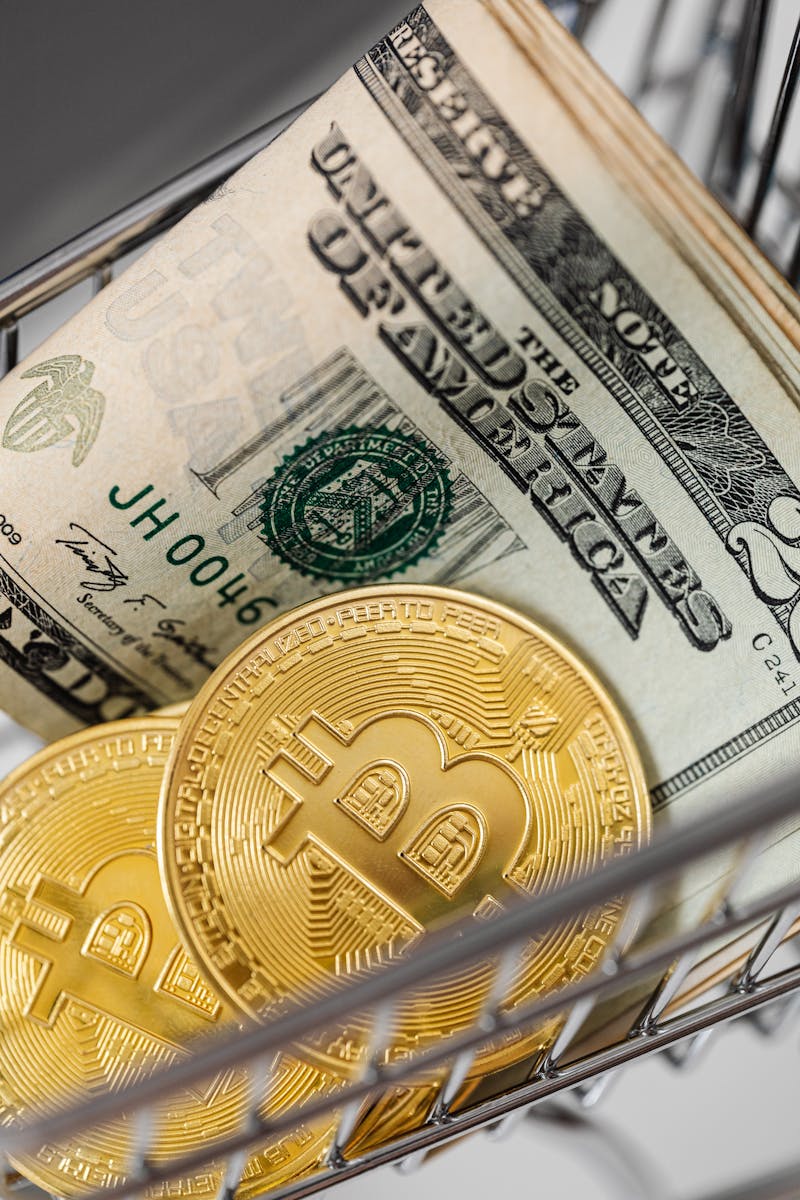Welcome, globetrotters and tech enthusiasts alike! You’ve likely heard of Bitcoin, but when it comes to traversing the globe, how does this digital currency fit into your travel plans? Let’s embark on a journey to understand the pivotal role Bitcoin can play in your international adventures.
Explanation of Bitcoin
At its core, Bitcoin is a form of digital currency, also known as cryptocurrency. It operates independently of a central bank and is powered by a technology called blockchain—a distributed ledger that records all transactions across a network of computers. The beauty of Bitcoin lies in its decentralization. No single entity controls it, which means it offers freedom from traditional banking systems and the intricacies of exchange rates that often accompany international travel.
Think of Bitcoin as electronic cash that you can send or receive anywhere in the world at any time, without the need for a middleman. With just an internet connection and a digital wallet, you have the power to manage your funds directly. Transactions with Bitcoin are secure, thanks to cryptographic techniques, and they can be more transparent and faster than those made with traditional currencies.
Growing Trend
The use of Bitcoin for international travel is blossoming. This trend is fueled by a desire for more efficient financial interactions while abroad. Savvy travelers are turning to Bitcoin to sidestep hefty bank fees and to enjoy the flexibility of a currency that transcends borders. It’s not just individual travelers; businesses too are beginning to accept Bitcoin, from hotels and airlines to restaurants and tour operators, making it increasingly practical for globetrotters.
Moreover, certain travel agencies have started to specialize in Bitcoin-based tourism, packaging trips that cater to the needs of the crypto-curious tourist. As Bitcoin gains credibility and popularity, its utility in the travel industry is poised to expand, promising exciting opportunities for those willing to navigate this new landscape.
So, as we see, Bitcoin isn’t just for the tech-savvy or investors; it’s becoming a valuable tool for anyone looking to simplify their financial matters while exploring the world. Its role in international travel is growing, offering an alternative to traditional payment methods that can be both cumbersome and costly.
Advantages of Using Bitcoin When Traveling Internationally
So, you’ve packed your bags and are ready to embark on your international journey. You remember your passport, your travel guide, and… your Bitcoin wallet? Indeed, incorporating this digital currency into your travel plans could yield some pleasant surprises, notably in the realms of cost-efficiency and security.
Cost-Efficiency
One of the immediate benefits of using Bitcoin while traveling is its ability to cut down on costs. Traditional currency exchange services are notorious for their fees and less-than-favorable exchange rates. Whether it’s the high fees at airport kiosks or the hidden charges in credit card transactions abroad, each exchange can nibble away at your travel budget. Bitcoin, on the other hand, operates on a different wavelength.

By design, Bitcoin transactions do not require a bank or clearinghouse. This means that the additional costs typically associated with these intermediaries are eliminated, potentially allowing you to save on transaction fees. Moreover, using Bitcoin shields you from the sometimes-exorbitant fees levied by banks for foreign transactions and ATM withdrawals. The difference in cost can be significant, leaving you with more funds to enjoy your travels.
Security and Privacy
Now let’s talk about security and privacy, crucial considerations when you’re miles away from home. Digital security might not be the first thing on your mind when planning a trip, but it should be high on your priority list, especially in unfamiliar environments. Bitcoin transactions bring a certain peace of mind in this regard.
For starters, Bitcoin operates on blockchain technology, which records transactions across multiple computers so that the record cannot be altered retroactively without the alteration of all subsequent blocks and the consensus of the network. This level of security is reassuring, particularly when you’re dealing with unfamiliar banking systems or worry about the safety of your financial data. And as for privacy, Bitcoin transactions do not require personal information like your name or credit card number, reducing the risk of identity theft.
It’s worth noting that while Bitcoin addresses are pseudonymous—they do not directly reveal the identity of their owner—they can still provide a level of privacy that traditional finance systems can’t match. Your financial activity won’t be tied to your personal identity unless you choose to disclose it, an appealing feature for those seeking to maintain their privacy while traveling.
Considerations and Risks of Using Bitcoin for International Travel
While the use of Bitcoin can streamline financial transactions when hopping across borders, it’s not without its challenges. Let’s delve into some considerations and risks that are part and parcel of using this digital currency while traveling internationally.
Volatility
The price of Bitcoin is known for its rollercoaster-like fluctuations. This volatility can be a double-edged sword. Imagine waking up to find your travel budget has increased because the value of Bitcoin has soared – a traveler’s delight! However, the opposite may occur, leaving you with less than you planned on spending. This unpredictability can significantly affect your travel expenses and requires a strategic approach. A savvy traveler might monitor the exchange rates closely or convert Bitcoin to local currency in increments to mitigate the risk of sudden price drops.
Regulatory Challenges
Navigating the legal landscape of Bitcoin usage in various countries can be akin to walking through a maze. Each country has its own stance on cryptocurrencies – some embrace them with open arms, while others view them with suspicion or have outright banned their use. This means that before you pack your bags, it’s critical to research the cryptocurrency regulations of your destination. Falling foul of local laws can lead to fines or, worse, legal trouble. It’s also wise to keep abreast of news on regulatory changes; the world of Bitcoin is dynamic, and rules can shift just as quickly as its market value.
In closing this section, it’s clear that while Bitcoin presents an exciting frontier for international travel, it comes with a caveat of volatility and regulatory hurdles. Being well-prepared and informed can help navigate these challenges effectively. END OF SECTION
Practical Tips for Using Bitcoin When Traveling Internationally
Research and Planning
Diving into the digital world of Bitcoin while traveling requires more than just a spirit of adventure; it calls for careful research and planning. Before you set off, it’s essential to investigate whether your destination is Bitcoin-friendly. This means checking if local merchants, hotels, or transportation providers accept Bitcoin as payment. You can often find this information on online forums, travel blogs, or even by contacting the services directly. Additionally, look into the availability of Bitcoin ATMs, which can be a convenient way to access local currency if needed.
Understanding the technological landscape of your destination is also crucial. Some countries may have restrictions on internet access, which could hinder your ability to perform Bitcoin transactions. Always have a backup plan – such as carrying a small amount of local currency – in case you encounter areas with limited digital infrastructure.
Wallet and Security
When it comes to managing your Bitcoins, selecting a secure wallet is paramount. A digital wallet is like a virtual bank account for your cryptocurrency, and there are several types to choose from, each with its own security features. Hardware wallets, for example, store your Bitcoin offline and are considered one of the safest options because they are less vulnerable to hacking. Mobile and desktop wallets provide convenience but ensure that you opt for ones with strong security measures like two-factor authentication.
While traveling, safeguarding your digital assets becomes even more important. Practice basic cybersecurity measures such as using strong, unique passwords for your wallet and any related accounts, and avoid using public Wi-Fi networks for financial transactions without a VPN (Virtual Private Network). It’s wise to keep multiple backups of your wallet’s private keys or seed phrase in separate secure locations. Losing access to your Bitcoin could be as detrimental as losing a physical wallet full of cash.

In addition to these precautions, consider the physical security of your devices. If you’re using a mobile wallet, make sure your phone has a robust lock screen, and never leave it unattended. For hardware wallets, treat them as you would any valuable item — keep them hidden and secure at all times.
Thorough preparation and a focus on security can make using Bitcoin while travelling a breeze. These practical tips not only enhance your travel experience but also ensure that you’re well-equipped to handle the digital demands and potential risks of international journeys.
Conclusion and Recommendations
In wrapping up our discussion on the intriguing world of Bitcoin and its application to international travel, we come to a critical juncture: weighing the pros against the cons. Let’s briefly recap the main advantages and risks associated with this digital currency that has been reshaping how some travelers manage their funds abroad.
Recap of Benefits and Risks
The journey through the Bitcoin landscape reveals several compelling benefits for the international traveler. Bitcoin transactions can offer significant cost savings by skirting high fees typically associated with currency exchange and credit card usage while abroad. This is particularly attractive in a world where every penny saved enhances the travel experience.
Moreover, Bitcoin provides a layer of security and privacy rarely matched by traditional financial systems. With Bitcoin, your personal information is not tethered to transactions, granting you a cloak of anonymity which can be comforting, especially when venturing into less familiar territories.
However, the path is not without its pitfalls. The notorious volatility of Bitcoin can turn budget planning into a rollercoaster ride, with the value of your assets fluctuating wildly—even mid-journey. Additionally, the regulatory environment surrounding Bitcoin is as varied as the destinations themselves, presenting a mosaic of legal considerations that must be navigated with care.
Call-to-Action
Now, dear reader, the map has been laid out before you, but the choice of the path remains yours. As you stand at the crossroads of deciding whether to incorporate Bitcoin into your international travel plans, I urge you to consider the balance of these factors with a discerning eye.
Should you choose to embrace this modern monetary marvel, let prudence be your guide. Research diligently the acceptance levels at your intended destination, understand the local regulations and prepare your digital wallet with the utmost attention to security. The digital terrain is ever-evolving, and staying informed is your surest ally in navigating it successfully.
In closing, remember that Bitcoin, like any tool, is as beneficial or detrimental as the wisdom with which it is wielded. Weigh its potential against its perils, and may


